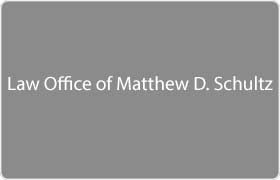 Brandon Misdemeanor Lawyers, Florida
Brandon Misdemeanor Lawyers, Florida
Sponsored Law Firm
-
 x
x

Click For More Info:
-
Law Office of Matthew D. Schultz
495 Grand Blvd. Suite 206 Miramar Beach, FL 32550» view mapAccident & Injury Law Over 25 Years of Experience
Mr. Schultz is an accomplished lawyer that has over twenty-five years of legal experience in accident & injury matters.
800-960-5971
Lawyers
1-2 of 2 matches
Divorce & Family Law, Misdemeanor, DUI-DWI, Criminal, Felony




 Matthew Schultz Saint Cloud, FL
Matthew Schultz Saint Cloud, FL Practice AreasExpertise
Practice AreasExpertise